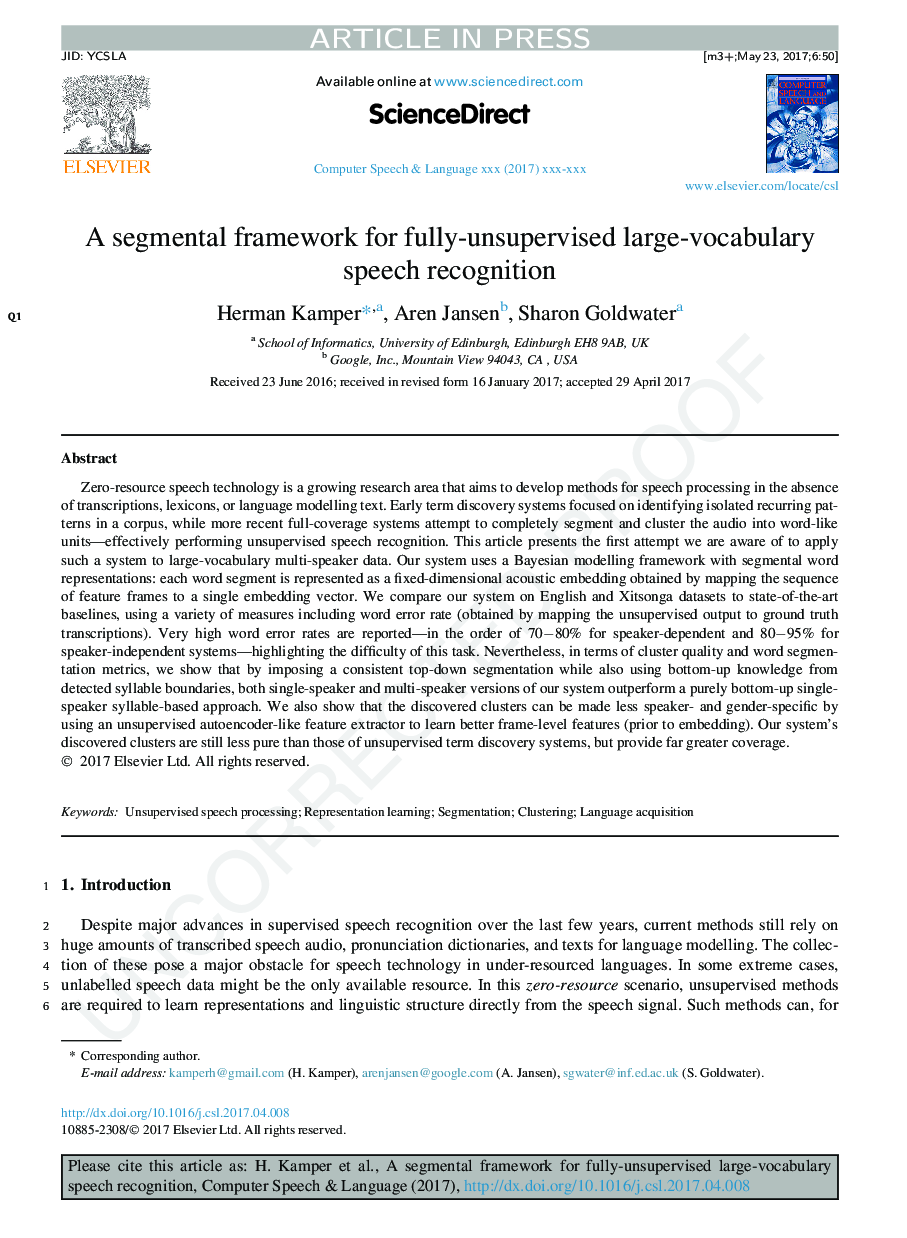| کد مقاله | کد نشریه | سال انتشار | مقاله انگلیسی | نسخه تمام متن |
|---|---|---|---|---|
| 4973706 | 1451681 | 2017 | 21 صفحه PDF | دانلود رایگان |
عنوان انگلیسی مقاله ISI
A segmental framework for fully-unsupervised large-vocabulary speech recognition
ترجمه فارسی عنوان
یک چارچوب سنتی برای به رسمیت شناختن گفتار بزرگ واژگان به طور کامل بدون نظارت
دانلود مقاله + سفارش ترجمه
دانلود مقاله ISI انگلیسی
رایگان برای ایرانیان
کلمات کلیدی
پردازش گفتار بدون نظارت، یادگیری نمایندگی، تقسیم بندی، خوشه بندی بدست آوردن مهارت زبانی،
موضوعات مرتبط
مهندسی و علوم پایه
مهندسی کامپیوتر
پردازش سیگنال
چکیده انگلیسی
Zero-resource speech technology is a growing research area that aims to develop methods for speech processing in the absence of transcriptions, lexicons, or language modelling text. Early term discovery systems focused on identifying isolated recurring patterns in a corpus, while more recent full-coverage systems attempt to completely segment and cluster the audio into word-like units-effectively performing unsupervised speech recognition. This article presents the first attempt we are aware of to apply such a system to large-vocabulary multi-speaker data. Our system uses a Bayesian modelling framework with segmental word representations: each word segment is represented as a fixed-dimensional acoustic embedding obtained by mapping the sequence of feature frames to a single embedding vector. We compare our system on English and Xitsonga datasets to state-of-the-art baselines, using a variety of measures including word error rate (obtained by mapping the unsupervised output to ground truth transcriptions). Very high word error rates are reported-in the order of 70-80% for speaker-dependent and 80-95% for speaker-independent systems-highlighting the difficulty of this task. Nevertheless, in terms of cluster quality and word segmentation metrics, we show that by imposing a consistent top-down segmentation while also using bottom-up knowledge from detected syllable boundaries, both single-speaker and multi-speaker versions of our system outperform a purely bottom-up single-speaker syllable-based approach. We also show that the discovered clusters can be made less speaker- and gender-specific by using an unsupervised autoencoder-like feature extractor to learn better frame-level features (prior to embedding). Our system's discovered clusters are still less pure than those of unsupervised term discovery systems, but provide far greater coverage.
ناشر
Database: Elsevier - ScienceDirect (ساینس دایرکت)
Journal: Computer Speech & Language - Volume 46, November 2017, Pages 154-174
Journal: Computer Speech & Language - Volume 46, November 2017, Pages 154-174
نویسندگان
Herman Kamper, Aren Jansen, Sharon Goldwater,
